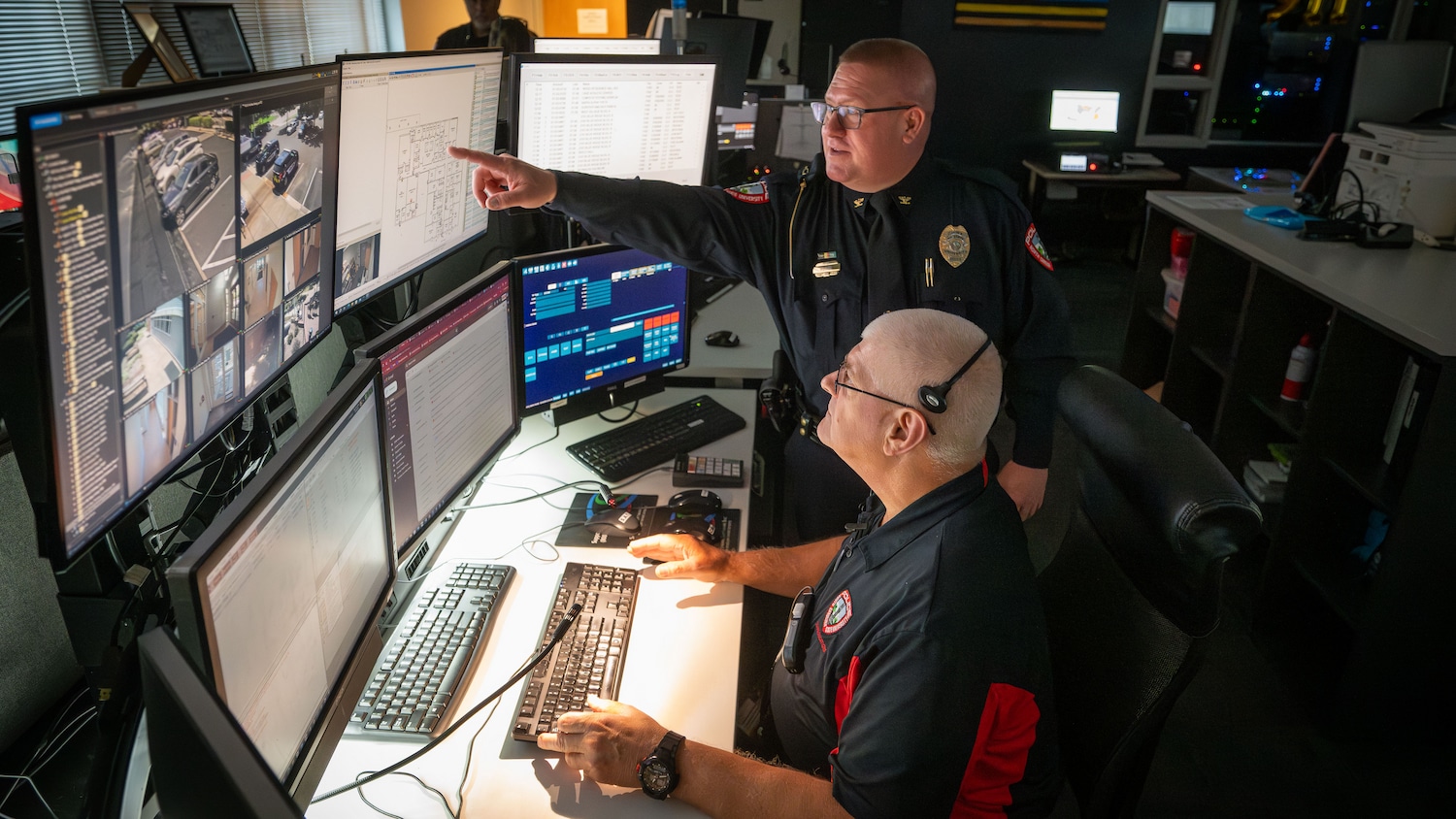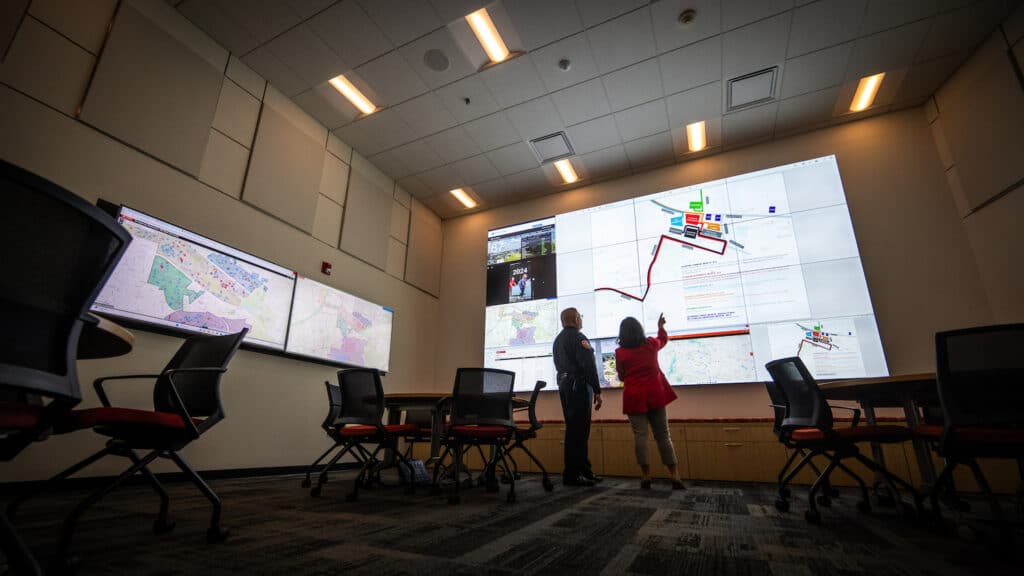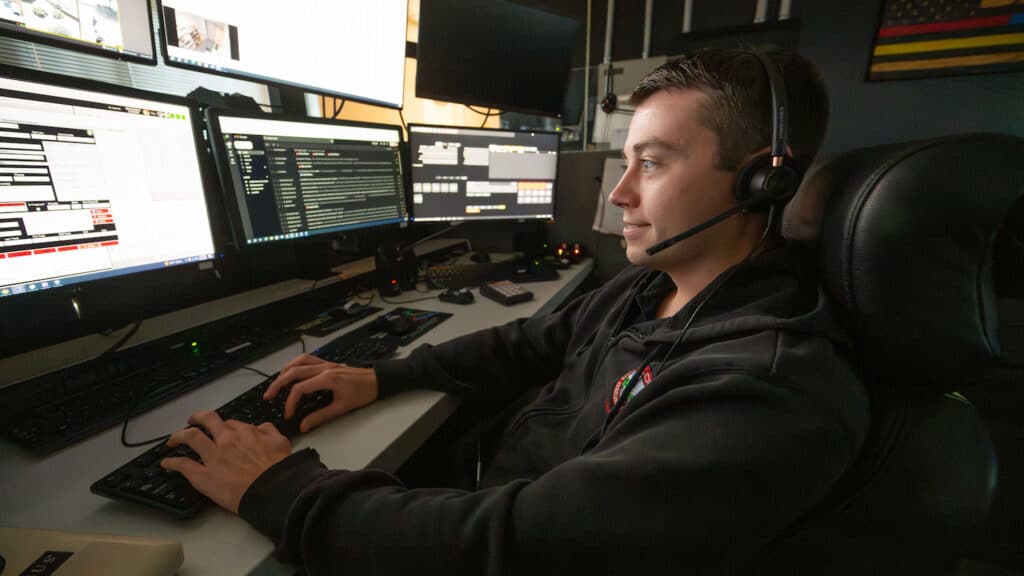Keeping NC State Safe
Hear about the communication and collaboration at the forefront of emergency preparedness at NC State.

NC State University’s top priority is the safety and well-being of its students, faculty and staff. To ensure we are prepared for anything that may come our way, NC State Emergency Management and Mission Continuity (EMMC) and NC State University Police are constantly working together with campus partners to improve our safety procedures, technology and systems.
In this interview, Todd Becker, EMMC manager, and NC State Chief of Police Dan House detail the university’s ongoing preparedness efforts and continuous on- and off-campus collaborations, and they share the safety resources available to every member of our Wolfpack.
What is EMMC, and what does the department do?
Becker: EMMC is responsible for properly preparing the campus community for a variety of emergencies through coordinated planning, communication, response and recovery measures. Located on NC State’s central campus, the department works with internal and external partners to ensure that all units at the university know what the best practices are when responding to either the smallest incidents or the largest ones — and everything in between.
Becker: New this year is EMMC’s Resiliency Operations Center (ROC), which launched just in time for our campus’ fall 2024 move-in activities. The center is located inside the campus police department and allows for multiagency collaboration, live views all over campus, support for home football games and other university-sponsored events, news reports, weather outlooks, traffic updates and more. ROC will stand as our heartbeat of information and serve as a major resource for real-time emergency communications and logistical and tactical-response planning.
Is there a police department directly on campus? Is it staffed 24/7?
House: The NC State Police Department (PD), housed directly next to EMMC on Wolf Village Way, is a fully staffed police department with officers on duty 24 hours a day, seven days a week. The department consists of 60 sworn officers spanning across patrol, support services and detective divisions. NC State PD works very closely with the Raleigh Police Department for larger-scale events and potential emergencies that would require additional units, a SWAT team or bomb-squad members.
How can students, faculty or staff reach the police department?
House: Students can reach the police department at any hour of the day by calling 919-515-3000. If there is an emergency on campus, immediately dial 911 and tell the dispatchers your location, and NC State crews will respond.
There are also over 300 blue light phones and stanchions, some with cameras, across campus. These physical safety features allow anyone on our campus to dial the PD directly. Also, if someone wants to file a complaint, apply for a space permit or submit an anonymous report, they can do so on our website.
It’s also very important for us to engage with our students on a consistent basis, so I host “Chats with the Chief” regularly. These forum-style events encourage our community to ask questions and get direct information from me and our staff.
ROC will stand as our heartbeat of information and serve as a major resource for real-time emergency communications and logistical and tactical-response planning.


How is the campus community notified if there is an incident on campus?
Becker: There are three levels of incident alerts, communicated on numerous channels.
The highest level is a WolfAlert, which is when there is an imminent threat to campus and action should be taken immediately. WolfAlerts are sent out via text message, desktop notifications, university social media, the OnCampus app, email, campus billboard signs and on the university homepage. In the case of a shelter-in-place emergency, the campus sirens will sound. EMMC and our campus partners hold monthly siren tests to ensure our technology is always in working condition.
The next level of alerts is a Crime Warning, which indicates that a crime, as defined by the Clery Act, has occurred on campus. Any information available at the time of alert will be sent out via text message, email, social media and the OnCampus app.
The third alert is a Safety Notice, which indicates a nonemergency incident, such as a traffic notice, off-campus information, a weather alert, a power outage or other important information. These alerts will also be communicated via text message, email, social media and the OnCampus app.
If you’ll remember, we conducted a campuswide WolfAlert communications test in the spring where we sent notifications through all the communication channels available to us. That wide-scale test highlighted a lot of things we do well and some areas where we could update the hardware and software we use. We plan to continue this form of emergency planning through campuswide drills once a semester. These drills are very important opportunities for all students, faculty and staff to learn and practice what actions to take in the case of a high-level emergency. Reminders of the drill will be communicated on various channels in advance.
How can students make sure they’re prepared and safe?
House: The police department hosts regular safety training programs that include training in responding to active threats, real-world safety, rape aggression response and use of pepper spray.
Becker: We recommend all students and employees — no matter where they are located — be Pack Ready and have a personal emergency plan for the unplanned and unexpected. Having a “go bag” with an emergency kit and 24 hours’ worth of belongings and medications is a great way to be prepared for any circumstance, regardless of the situation.


